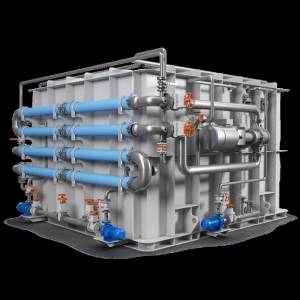
Membrane bioreactor (MBR) systems offer significant advantages over traditional activated sludge systems for wastewater treatment. Their unique combination of biological treatment and membrane filtration results in superior effluent quality, increased operational flexibility, and reduced footprint. Here's a detailed breakdown of their key benefits:
MBR technology is suitable for a wide range of applications, including:
While MBR systems offer numerous advantages, it's important to consider the higher initial capital costs compared to traditional systems. However, the long-term operational efficiency and superior effluent quality often outweigh these initial expenses, leading to significant benefits over the system's lifecycle. A thorough cost-benefit analysis should be undertaken to determine the suitability of an MBR system for any specific application.